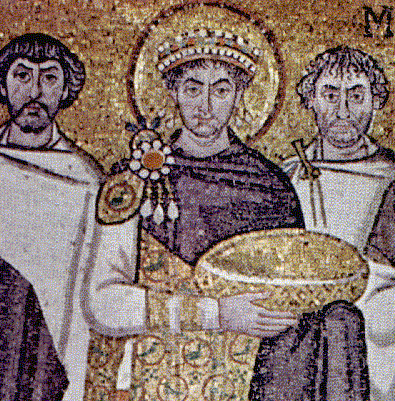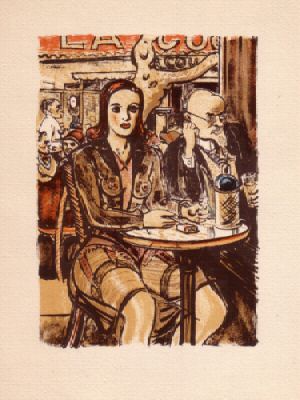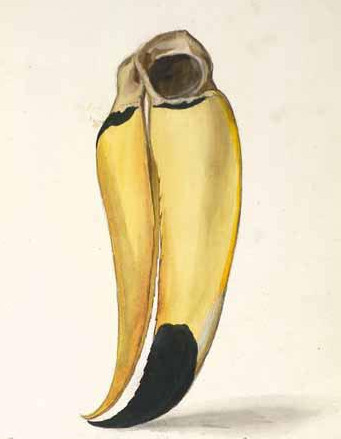Codex Ivstianvs
Why, hello. Fancy seeing you here.




Tuesday, January 30, 2007
Tuesday, January 23, 2007
Shahadah
Though I profess the Roman faith, I have always thought that this was one of the greatest prayers ever. It's a top three with the Lord's Prayer and the Kaddish.
ā ilāha illā-llāh, wa muħammadan rasūlu-llāh
There is no god but God, and Muhammad is His prophet.
And apparently George W. Bush thinks so too.
(via unfogged, another blog better than my own).
If you're in a prayerful mood:
Lord's Prayer
Nicene Creed
Kaddish
Prayer of St. Francis
And I'm open to suggestions. I am, as the Reverend did once say, merely a sinner, in the hands of an angry God. I often think, though most of my friends and acquaintances might rightfully claim I am mistaken, that if the President were to have greater faith enough to study his faith and critique it as the Doctors of the Church once did, he might be a better President.
Read more
ā ilāha illā-llāh, wa muħammadan rasūlu-llāh
There is no god but God, and Muhammad is His prophet.
And apparently George W. Bush thinks so too.
(via unfogged, another blog better than my own).
If you're in a prayerful mood:
Lord's Prayer
Nicene Creed
Kaddish
Prayer of St. Francis
And I'm open to suggestions. I am, as the Reverend did once say, merely a sinner, in the hands of an angry God. I often think, though most of my friends and acquaintances might rightfully claim I am mistaken, that if the President were to have greater faith enough to study his faith and critique it as the Doctors of the Church once did, he might be a better President.
Labels: faith
Read more
SOTU
The President's speech was better than I thought it would be. But...that's not saying much. And really, why listen to me? Here's Joshua Micah Marshall, proprietor of talkingpointsmemo.com, which is the best political blog out there. I pretty much agree with him. About everything.
Read more
Labels: politics
Read more
Friday, January 19, 2007
Sunday, January 14, 2007
Thursday, January 11, 2007
The Undeservedly Obscure Dead

The Undeservedly Obscure Dead returns for a one-night engagement. (I pronounce it "Ahn-gaj-MON" because I'm insufferable.) Tonight, maybe not obscure, but more obscure than he should be, Neal Cassady: A Colossus risen to Destroy Denver.
He was, like me, Denver native-born. We drove down streets at night, streets of America, fast and loud and drunk. He was the hero of "On The Road" (you might know him as Dean Moriarty). He was the hero of "Howl" the one, "who journeyed to Denver, who died in Denver, who came back to Denver & waited in vain, who watched over Denver & brooded & loned in Denver and finally went away to find out the Time, & now Denver is lonesome for her heroes."
Let's let Dr. Thomas J. Noel tell it:
Most fans of On The Road know him as the model for the novel's main character, Dean Moriarity, but the famous line about Lord Byron might be the best shorthand phrase to introduce Neal Cassady (1926-1968): both were notorious for being "mad, bad, and dangerous to know." Spontaneous, exciting and inspiring to his friends, outsiders were alarmed and put off by what sometimes appeared to be his selfish impetuosity and disturbing self-destructiveness. Beyond being a womanizer, he was a people-izer: Money, shoes, pants, knowledge, whatever: it's a fair bet that if Cassady approached you on the street today, he'd charm or con something off you in a heartbeat. And what's more, you wouldn't really mind at all because somehow he'd manage to instantly enliven your world while he was doing it.
The word "charm" is important in its positive sense, because when Allen Ginsberg (1926-1997) and Jack Kerouac (1922-1969) met him for the first time, he knocked their socks off: he talked fast like they wanted to, lived in the moment like they wanted to, wrote 18,000-word letters like they wanted to. Without hesitation, he seemed to instantaneously follow every single impulse that announced itself in his cerebellum. He was, in short, an authentic American creation at a moment when authenticity, above all, was prized by his friends.
Was he the king of hyperactive American authenticity or was he just an American psycho? At one level Cassady might be filed away in anonymous American history as an impulse-addicted sociopath plain and simple, and it's true that he'd have no place in history had he not encountered Kerouac and Ginsberg. Nevertheless, Ginsberg did indeed fall head over heels in love with Cassady and followed him to Denver; and Kerouac fell hard, too, for the idea of Cassady's persona (the main characters of both On The Road and Visions of Cody are based on him) and considered Cassady a brother for all time. For years Kerouac idealized Denver as a holy American locale because it produced, after all, an American character like Cassady. Years after he left their lives, both Ginsberg and Kerouac found themselves still sorting out their feelings about this complex character in novels and poems.
Neal Cassady was a child of gritty downtown Denver streets, a product of extreme poverty and routine abuse at the hands of parents, siblings and strangers. His parents divorced when he was young, with his mother keeping him through school terms while his father - a charming, chronically alcoholic, intermittently employed barber - had custody during the summers. Custody in this case meant hopping trains to Texas, Nebraska, and spending nights in precarious flop houses up and down Larimer Street or camping out by the rail yards beside the South Platte River. Still, in the one book we are lucky enough to have from him, a memoir, published posthumously, of his early Denver years, Neal managed to see his boyhood as a mix of danger and adventure that he almost seems to view as character-building. To distract himself he began to read voraciously, both in the main library downtown and during his time behind bars. By the time Kerouac and Ginsberg met him, he was the only car thief they'd ever met who could quote liberally from Schopenhauer and Kant, but then again he probably was the only car thief in America who could do this.
Learned philosophizing aside, his rememberers say that the primal act of driving incredibly fast down a city street (preferably in someone else's car) was his favorite thing to do, hands down. Like many a juvenile delinquent before and after, he was street-smart and intelligent but adrift and bored out of his gourd as a result. In Cassady's case, boredom eventually merged with his passion for driving, and the result was a compulsive and apparently effortless swath of car thefts that left hundreds of Denver car owners car-less through the 1930s and '40s: by his own estimate he was responsible for the theft of 500 cars by the time he was 21, and at some point the State of Colorado agreed, because he did longish stretches of time in the state reformatory for juveniles.
There's no space here to adequately summarize Cassady's full life: he left Denver for San Francisco, married, raised children, worked for the railroad, stayed linked to his friends Ginsberg and Kerouac, and made new friends with members of the second generation of Beats - really the "hippies" and "flower children" of the 1960s - including Ken Kesey's Merry Pranksters (Cassady drove Kesey's famous bus around the country) and the Grateful Dead. He continued, like anyone, to let a template of recognizable good and bad habits wash over him and he died of hypothermia after passing out near a railroad track outside San Miguel de Allende, Mexico, in February 1968.
So I give you, discerning readers, Neal Cassady. Neal, you were a street poet and philosopher, you were drunk and criminal and a new American Thoreau. So we salute you. Had you not succumbed to everyday life and booze, you might have eclipsed them all.
Denver, though gentle reader, I assure you, does not lack for heroes. She is well tended and well guarded. Don't come here. We're fine.
Labels: literature, the undeservedly obscure dead, Things to do in Denver when you're dead
Read more

